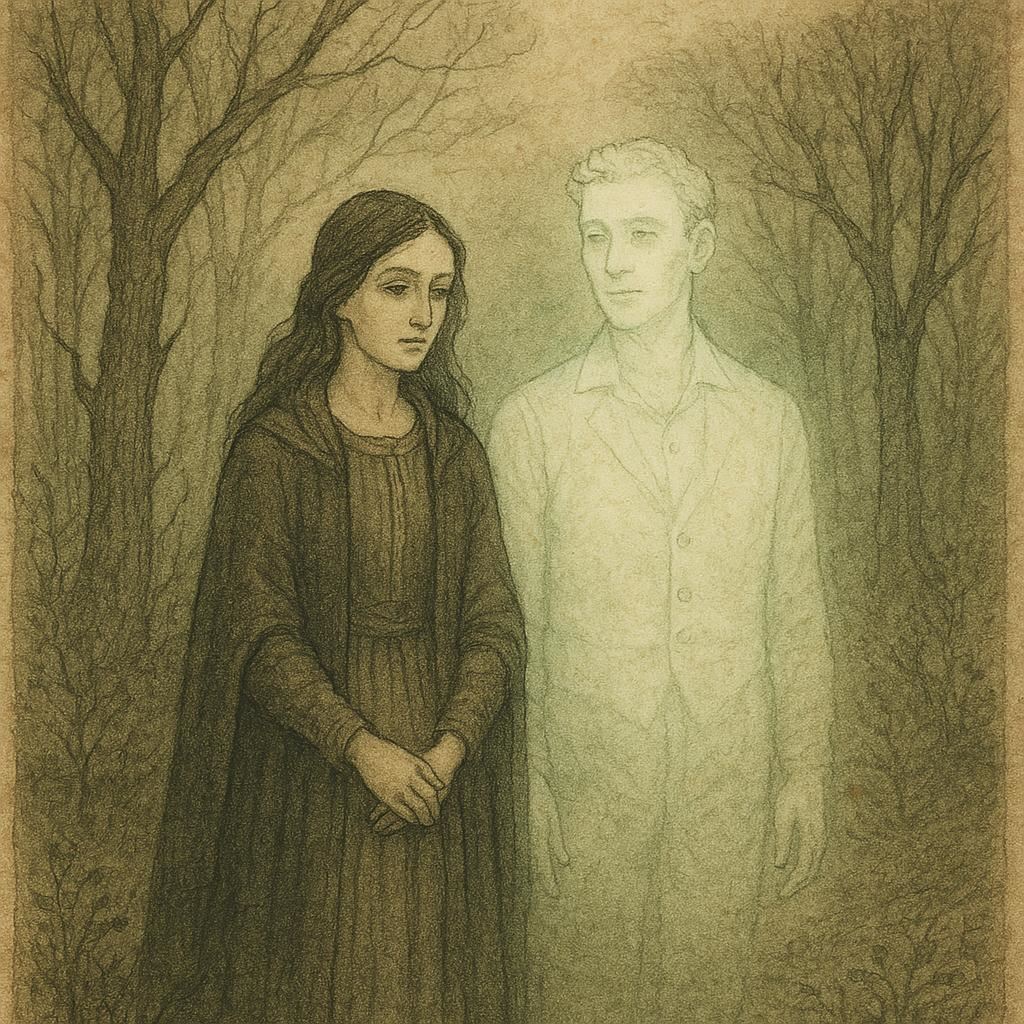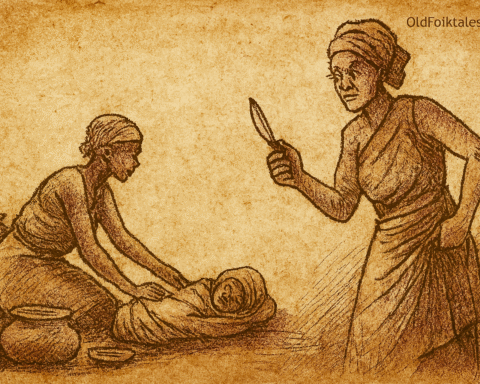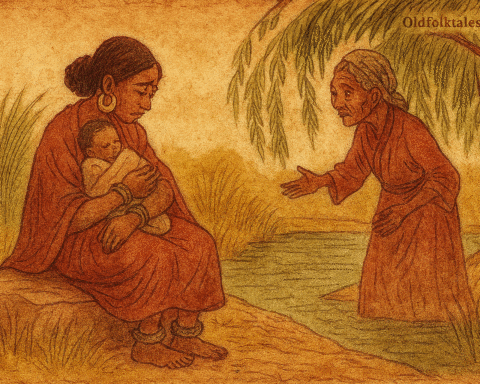Long ago, when spirits walked with men and the wind carried whispers from the other world, there lived a beautiful young woman named Adaeze. She was known throughout her village for her charm, kindness, and her laughter that could light even the darkest night. Many young men sought her hand, yet none seemed to capture her heart.
One evening, during the festival of the full moon, Adaeze went to the river to fetch water. As she sang softly, a handsome man appeared from the shadows. His eyes glowed faintly, and his smile was gentle yet mysterious. “Greetings, fair maiden,” he said. “I am Chinedu. I have watched you from afar and wish to be with you.”
Adaeze, taken by his charm and the warmth in his voice, felt an instant connection. Over the following weeks, Chinedu visited her daily, bringing gifts and speaking of love and loyalty. The villagers whispered among themselves, warning her to be careful, but Adaeze could not resist the pull she felt toward him.
Eventually, Chinedu asked for her hand in marriage. Without consulting the village elders, Adaeze agreed, convinced she had found her true love. On the night of their wedding, the air was thick with enchantment. The drums sounded softly, and the river reflected the moon’s silver light, as if nature itself celebrated their union.
However, as the days passed, strange things began to occur. Chinedu only appeared at night and vanished at dawn. Doors that were locked in the morning were mysteriously open by evening. At times, Adaeze felt cold winds brushing her skin when no windows were open. Her friends began to notice that she seemed tired and anxious, and they urged her to seek counsel from the village diviner.
The diviner, an old woman with deep knowledge of spirits, listened carefully and then said, “Adaeze, your husband is not a man of flesh and blood. He is a spirit who walks in the night. Spirits can love, but their world is not ours. If you continue without caution, you risk losing yourself to the unseen.”
Adaeze, frightened but determined, confronted Chinedu one night by the river. “Who are you truly?” she demanded. The waters swirled, and his form shimmered, revealing a spectral body glowing faintly in the moonlight. “I am what I am,” he said softly. “I meant no harm, but appearances can deceive. Love can exist between worlds, yet not without cost.”
Heartbroken yet wiser, Adaeze realized the truth: what she saw and desired was not always what truly existed. She ended the marriage, and Chinedu vanished into the mist. From that day on, Adaeze respected the unseen and always sought truth beyond appearances. She became known for her wisdom and careful judgment, teaching others that not everything is as it seems.
The villagers remember her story to this day, reminding their children that the world is full of mystery and that appearances can be deceiving. Only by seeking truth and understanding can one navigate both the seen and unseen safely.
Moral Lesson: The Woman Who Married a Ghost
Appearances deceive. Adaeze’s story teaches that not everything is as it seems. What appears charming or harmless on the surface may hide danger or complexity. True wisdom comes from seeking the truth, listening to guidance, and not being swayed solely by outward beauty or charm. Being cautious and observant helps one avoid harm and make better choices in life.
Knowledge Check: The Woman Who Married a Ghost
Why did Adaeze fall in love with Chinedu?
She was captivated by his charm, gentle voice, and mysterious presence, believing he was her true love.What strange events made Adaeze suspicious of her husband?
Chinedu only appeared at night, doors were mysteriously unlocked, and she felt cold winds when no windows were open.Who helped Adaeze discover the truth about her husband?
The village diviner explained that Chinedu was a spirit, not a human man, and warned her of the danger.What lesson did Adaeze learn after confronting Chinedu?
She learned that appearances can deceive and that one must seek the truth beyond what is seen.How did Adaeze’s life change after ending the marriage?
She became known for her wisdom, careful judgment, and understanding of the unseen, teaching others to look beyond appearances.What is the main moral of the story?
Appearances can be deceiving; one must seek truth and understanding to avoid being misled.
Cultural Origin: Igbo, Nigeria




